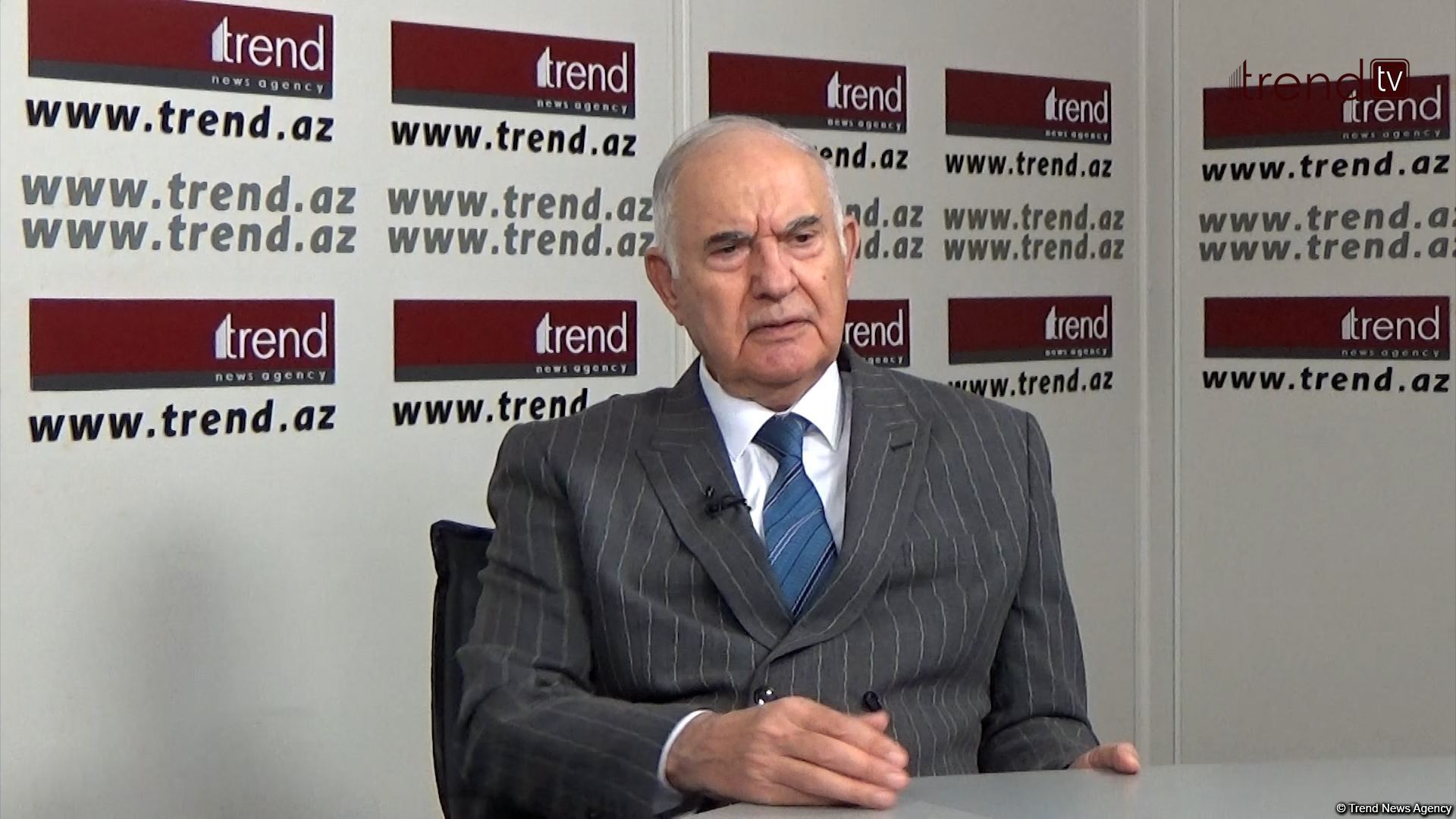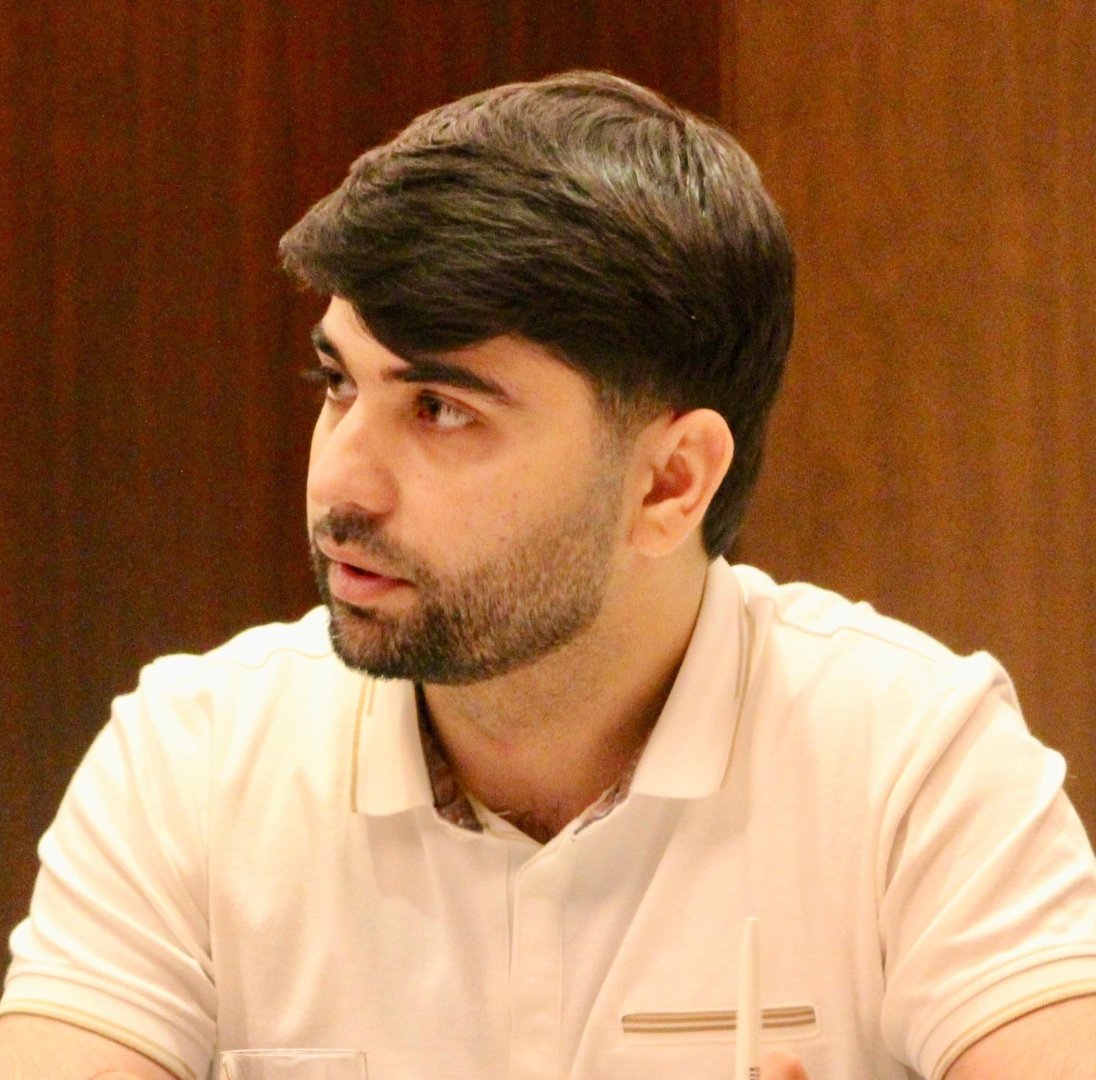BAKU, Azerbaijan, November 17. The 27th plenary session of the Conference of Special Services Agencies of Turkic-speaking States, held yesterday in the city of Khankendi, was not just another official meeting for the region, political analyst Azer Garayev told Trend.
The event, themed "The Role of Special Services in Ensuring the Security of International Transport Routes," conveyed significant political, security, and geostrategic messages at a time when transport corridors are becoming increasingly pivotal in the evolving global order, he stated.
Garayev emphasized that the participation of intelligence and special services leaders at a meeting hosted by Azerbaijan underscored that the protection of international transport routes has transcended its economic significance to become a matter of national security. He pointed out that the attendance of Colonel-General Ali Naghiyev, Head of the State Security Service, Colonel-General Orkhan Sultanov, Head of the Foreign Intelligence Service, as well as senior officials from Türkiye, Kazakhstan, Uzbekistan, Kyrgyzstan, and a high-level delegation from Hungary, highlighted the broader geopolitical importance of this agenda beyond the Turkic world.
He further noted that in the twenty-first century, competition among major powers is no longer limited to military might. Transport corridors, spanning ports, railways, highways, air routes, and communication networks, have become central instruments of geopolitical influence, facilitating the secure flow of energy, trade, strategic supplies, and information.
The analyst stressed that threats targeting international transport lines have diversified.
“International terror networks see the destruction of critical infrastructure as a priority target, transnational organized crime groups attempt to use routes for trafficking drugs, weapons and smuggled goods, cyberthreats aim at the electronic control of transport systems, and hybrid attacks seek to paralyze links within logistical chains,” he said. For this reason, the security of transport corridors today is not solely the responsibility of border services but has become a strategic field for special services," he said.
Garayev recalled that in the early years of Azerbaijan’s independence, the country faced several terror attacks targeting transport infrastructure by hostile states and separatist groups. “The explosion on the Kislovodsk–Baku passenger train at the Baku Railway Station; the terror attack at the ‘January 20’ metro station on March 19, 1994; the downing of an Iranian Hercules aircraft near Khankendi by Armenian terrorists; and the July 3, 1994, blast on the Baku metro line between ‘28 May’ and ‘Ganjlik’ stations, all aimed to spread fear and destroy public trust. Despite this, Azerbaijan’s special services identified and brought to justice those responsible and made significant achievements in protecting the country’s security and defending its transport lines,” he said.
He added that while threats in the past were mainly terror acts, today they are more advanced, complex and multifaceted, hybrid, cyber, and transnational. Thus, the responsibility of special services extends beyond protecting transport routes and forms a core component of national security. Historical experience, he said, shows that without strong, coordinated intelligence activity, securing transport infrastructure is impossible.
The political analyst emphasized that Azerbaijan’s geography places it at one of the central junctions of the historic Silk Road. “In the 21st century, this advantageous geography is once again turning the country into a key pillar of global logistics,” he said.
Azerbaijan today is an integral part of several major international transport routes, including the North–South Corridor, the East–West or Middle Corridor, the Southern Gas Corridor (SGC), the Zangezur Corridor, the Baku–Tbilisi–Kars (BTK) railway, and the Trans-Caspian transport network. These routes strengthen Azerbaijan’s role as an economic bridge between Europe and Asia, but its growing transit potential also brings increased risks. For this reason, Azerbaijan has made transport security a priority for its special services.
At the Khankendi session, Colonel-General Ali Naghiyev highlighted efforts to undermine the realization of the Zangezur Corridor, a key component of the Middle Corridor, by various “destructive circles.”
Garayev described the Middle Corridor (the Trans-Caspian International Transport Route – TITR) as one of the most discussed global projects in recent years, connecting China - Kazakhstan - the Caspian Sea - Azerbaijan - Georgia -Türkiye, and creating a path to Europe. Compared with traditional northern and southern routes, it is considered shorter, safer, and more resilient.
The political analyst said the Middle Corridor’s global importance is defined by several factors: it brings new momentum to Europe–Asia trade, has strategic value within China’s Belt and Road initiative, strengthens Azerbaijan’s geopolitical position, and offers an alternative route to Europe, China, and Central Asia with lower conflict risk. Garayev noted that Azerbaijan is the most critical junction of the Middle Corridor, as most cargo moves across the country via the Port of Baku and the BTK railway. While this brings economic gains and geopolitical leverage, it also creates new risks. Ensuring readiness and cooperation among special services to counter threats to logistics chains is therefore vital.
Garayev said that during the plenary session, Ali Naghiyev specifically addressed the Zangezur Corridor. This route, a key part of the Middle Corridor, will connect the main part of Azerbaijan with the Nakhchivan Autonomous Republic and Türkiye, becoming a “game-changer” for both Azerbaijan and the region. However, as emphasized during the event, several destructive centers are attempting to hinder its implementation through political pressure and information manipulation. These threats make the corridor’s opening not only an economic issue but also a national security matter, he said. Strengthening coordination among special services, intensifying information exchange, and establishing joint mechanisms against hybrid threats were highlighted as crucial priorities.
Many mechanisms that underpin the security of international transport routes remain largely unseen by the public, with special services serving as their core. These services operate across a broad spectrum of activities, including intelligence and counterintelligence, the early identification of threats, the neutralization of sabotage efforts by foreign entities, the protection of critical infrastructure, the fight against terrorism and transnational crime, the prevention of drug and arms smuggling, and the safeguarding of the digital platforms that manage modern transport systems. As transport infrastructure becomes increasingly digitalized, the need for robust cyberdefense measures for ports, rail networks, and logistics databases has become more critical. Given the wide-ranging nature of the threats involved, only collaborative efforts can effectively address them. The enhancement of information sharing, operational cooperation, and joint operations among Turkic states, as highlighted during the plenary session, represents a significant step forward in this regard.
Garayev noted that global politics is entering a new phase, with the world economy shifting toward Asia and logistics emerging as a central element in the dynamics of global power.
"In this context, the Middle Corridor must be further developed. With the opening of the Zangezur Corridor, the Turkic world should become a unified logistics space. Azerbaijan will reinforce its position as one of the key intercontinental transit hubs," he stated.
He further emphasized that the Khankendi meeting holds particular significance in this context. While the nature of threats faced by states continues to evolve, one constant remains: the pivotal role of special services in ensuring the security of transport routes is indispensable.
Overall, Garayev concluded, the plenary session in Khankendi demonstrated that the security of transport corridors is not only an economic matter but also fundamental to state sovereignty, regional stability, and international cooperation. The responsibility of security agencies in this field is greater than ever. Standing at the center of this process, Azerbaijan is safeguarding its national interests while contributing to the strategic integration of the Turkic world. Ensuring the secure functioning of the Middle Corridor, the Zangezur Corridor, and other transport routes is essential for the region’s future development, and coordinated cooperation among special services is the most effective mechanism against global threats.
Stay up-to-date with more news on Trend News Agency's WhatsApp channel







